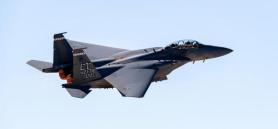
SEOUL, October 16 (AJP) - South Korea's Hanwha Group plans to unveil a suite of AI-driven defense systems designed to address manpower shortages and enhance battlefield efficiency.
The group said Thursday Hanwha Aerospace, Hanwha Systems, and Hanwha Ocean will jointly participate in the Seoul International Aerospace and Defense Exhibition (ADEX) 2025, to be held Oct. 20–24 at KINTEX in Ilsan, northwest of Seoul.
The companies plan to showcase more than 10 thematic zones centered around a “space zone,” underscoring Hanwha’s commitment to AI integration across land, sea, air, and space technologies.
Among the highlights will be the debut of the Loitering Precision Guided Weapon (L-PGW), a next-generation system that combines the capabilities of a missile and a drone.
Designed as a future export model, the L-PGW can be launched from Hanwha’s Chunmoo multiple rocket launcher and uses AI to locate, track, and engage targets via satellite link before deploying a self-destructing drone on impact.
The company will also introduce the Themis-K, an unmanned ground vehicle (UGV) tailored for the Korean military and built on a platform developed by Estonia’s Milrem Robotics. The vehicle, equipped with Hanwha Aerospace’s remote-controlled weapon system, will appear alongside smaller UGVs such as the Arion-SMET and Grunt models.
Another exhibit will feature the evolution of Hanwha’s signature K9 self-propelled howitzer — from the semi-automated K9A2, which reduces crew needs from five to three, to the fully unmanned K9A3, capable of autonomous maneuvering in coordinated formations under a single command vehicle.
At sea, Hanwha Ocean will showcase a next-generation “strategic surface ship” equipped with AI-based threat detection, while Hanwha Systems will present a “Smart Battleship” that integrates combat, engine control, and bridge operations through AI-assisted target recognition and engagement management.
In the space zone, Hanwha Systems will display the Nuri rocket, slated for its fourth launch, alongside a 0.15-meter ultra-high-resolution synthetic aperture radar (SAR) satellite. The company said that combining AI with satellite imaging will dramatically enhance surveillance and target identification capabilities.
Hanwha will also outline its long-term vision for “Defense Sovereign AI” — a Korean-developed AI framework for secure defense applications.
Working with domestic IT firms and small and midsize enterprises, Hanwha aims to build an integrated system linking detection, command, and strike capabilities based on Korean defense data and infrastructure.
“In a rapidly changing security environment, we aim to contribute to self-reliant defense with cutting-edge AI technology,” Kim Dong-kwan, vice chairman of Hanwha Group, said in a press release. “Together with our partners, we hope to build a competitive domestic defense ecosystem that serves as a growth engine for the future.”
* This article, published by Aju Business Daily, was translated by AI and edited by AJP.
Copyright ⓒ Aju Press All rights reserved.



